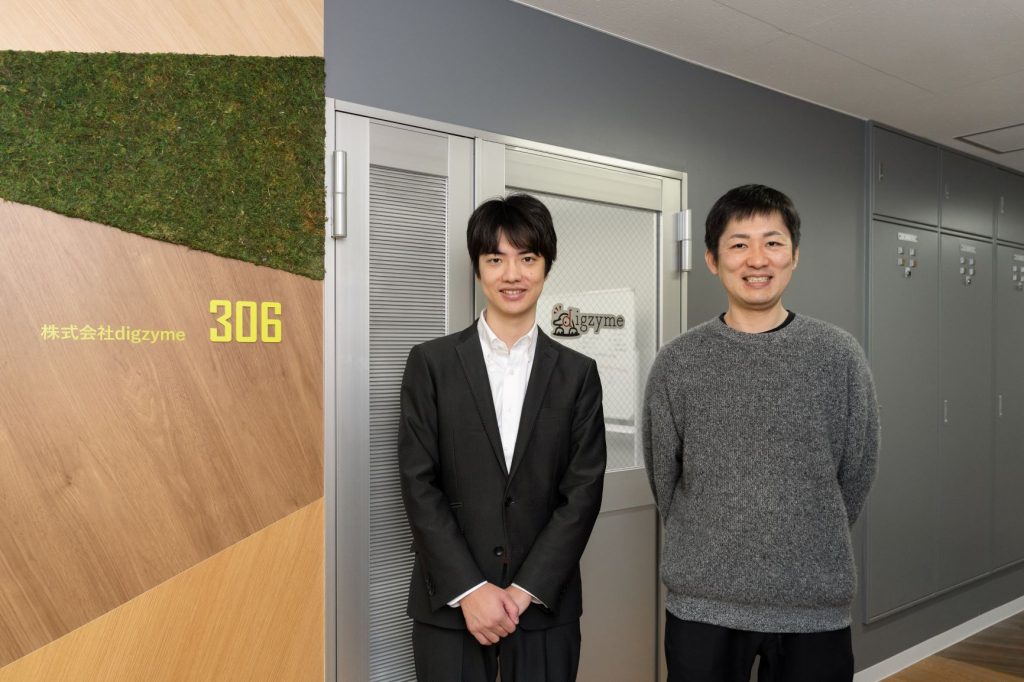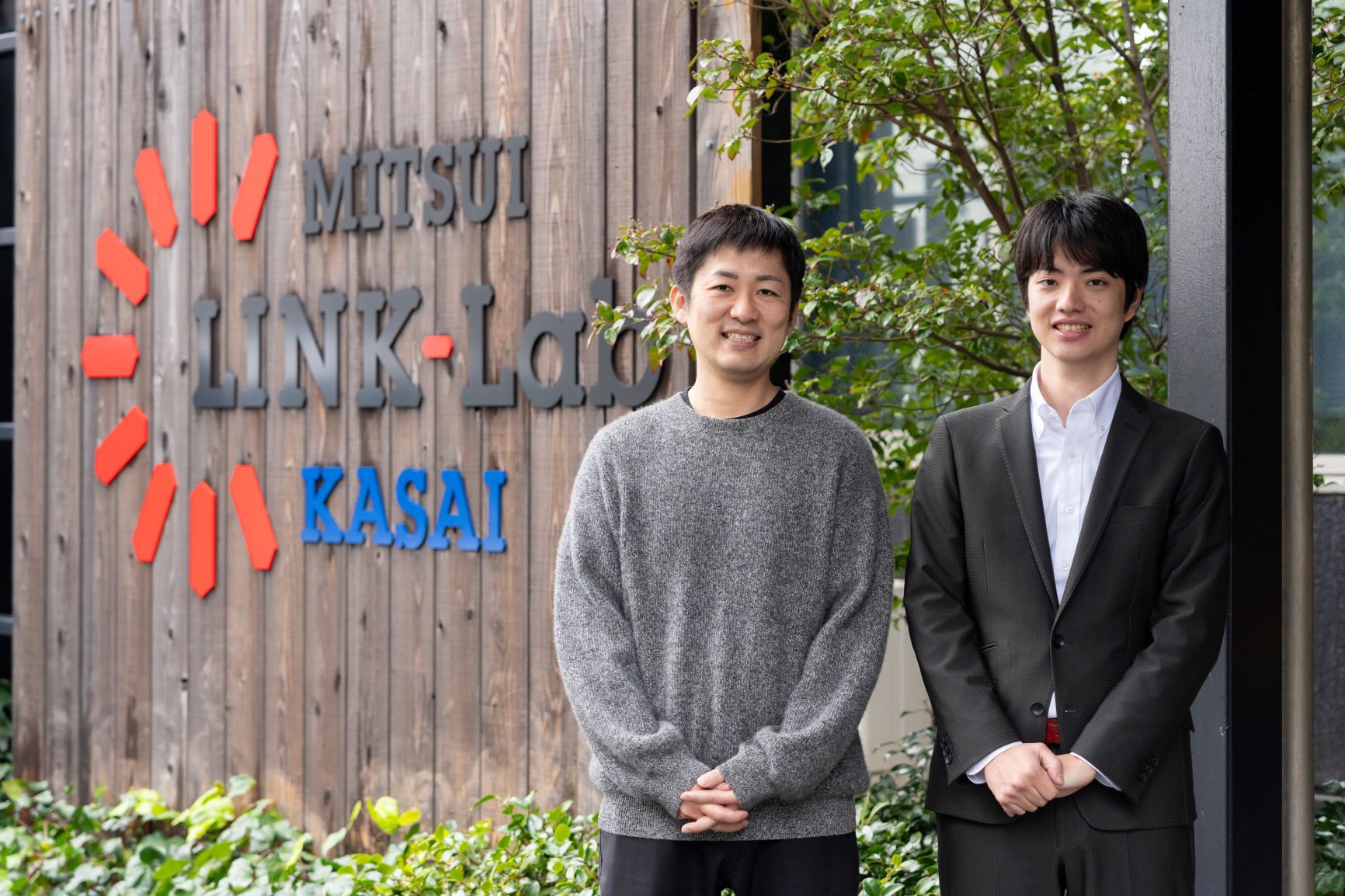Search and optimize the required enzymes from open data
First of all, please tell us about your business.
digzyme torai-sama :Our business is “enzyme”. Specifically, we provide a service that reads the vast amount of research data on life sciences that sleep in the world, and efficiently and quickly designs industrial enzymes that customers need. The company name is a combination of English "dig" and "-zyme" (suffix for enzymes). Currently, we are trying to find candidates for promising enzymes from open data, and then use AI to improve their functions and redesign them to match the purpose of use, they actually synthesize them to verify their activity, productivity and stability, and establish a path to mass production. In addition, we also provide enzyme development consulting services.
digzyme Izumi-sama :However, we do not plan to own actual production plants in-house. Our business style is fabless (a business model that does not have production facilities and outsources manufacturing to subcontractors). Therefore, our role is to build a system for mass production of excellent enzymes.
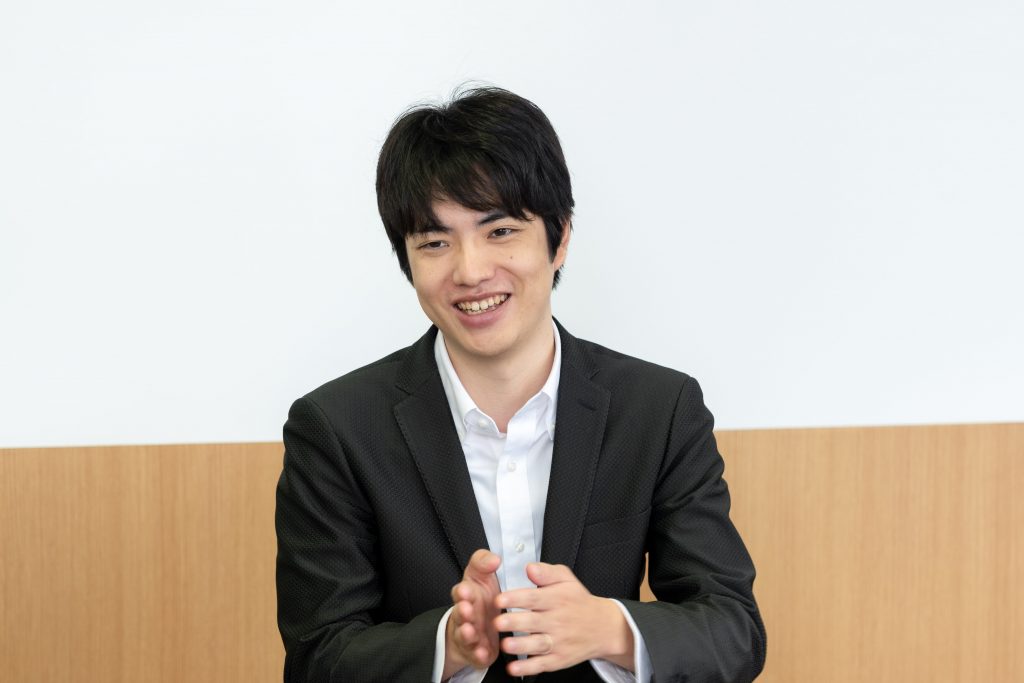
Please tell us about the uniqueness of your business.
digzyme torai-sama :Our uniqueness is that we use open data to efficiently design necessary enzymes insilico. Various research data on life sciences is collected and accumulated every day around the world. From my experience of uploading a large amount of genetic data in my research on koji mold during my PhD era, is there no way to make effective use of the large amount of data accumulated daily? I was always thinking about it. Among them, enzymes are used in various industries, and I was blessed with the opportunity to conduct joint research with companies, so I felt that "the distance to social implementation is close."
digzyme Izumi-sama :In recent years, the role of enzymes has begun to attract attention even in industries that have not used enzymes. For example, in the chemical industry, there is a growing movement for enzymes to break down petroleum-derived products such as plastics. We will also actively challenge these trends. On the other hand, even in industries that have used enzymes for a long time, such as food and detergents, we believe there is plenty of room to create new value with our technology. Therefore, we will continue to pursue a wide range of possibilities of enzymes without defining specific industrial areas.
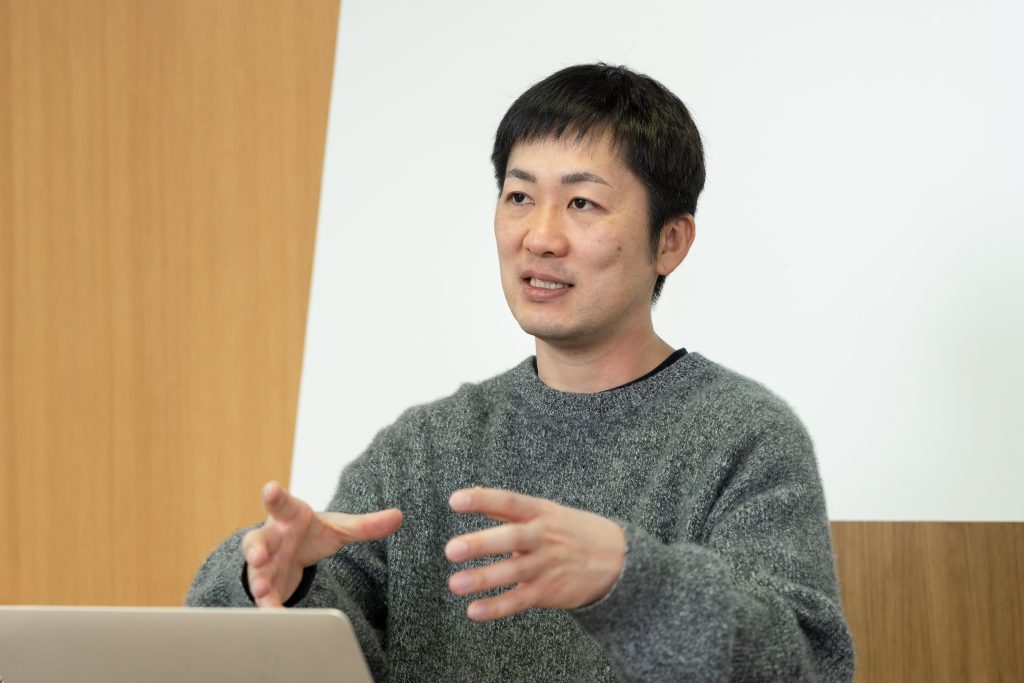
Are there any difficulties in your current business development?
digzyme coming here: In the first place, it seems that you know what "enzyme" is, and it is not surprisingly known. In one word, enzymes are "proteins that function as catalysts", but in fact they have various catalytic functions that we did not know before. Looking at the original data of the "enzyme that decomposes resin" we discovered, we did not write such functions anywhere, but we succeeded when we tried it. There are many such cases. The key is to get to know more about the potential of enzymes.
digzyme Izumi: When I actually talk to you, there are many customers who say, "I don't know what enzymes can do." Especially in industries that have previously been unrelated to enzymes, there is such a tendency. On the other hand, global demand for industrial enzymes is very large, and the enzyme industry is overwhelmingly the seller market. The world's largest player is not enemies even if we add all sales of Japanese enzyme-related companies. In the future, we want to be a representative of Japan.
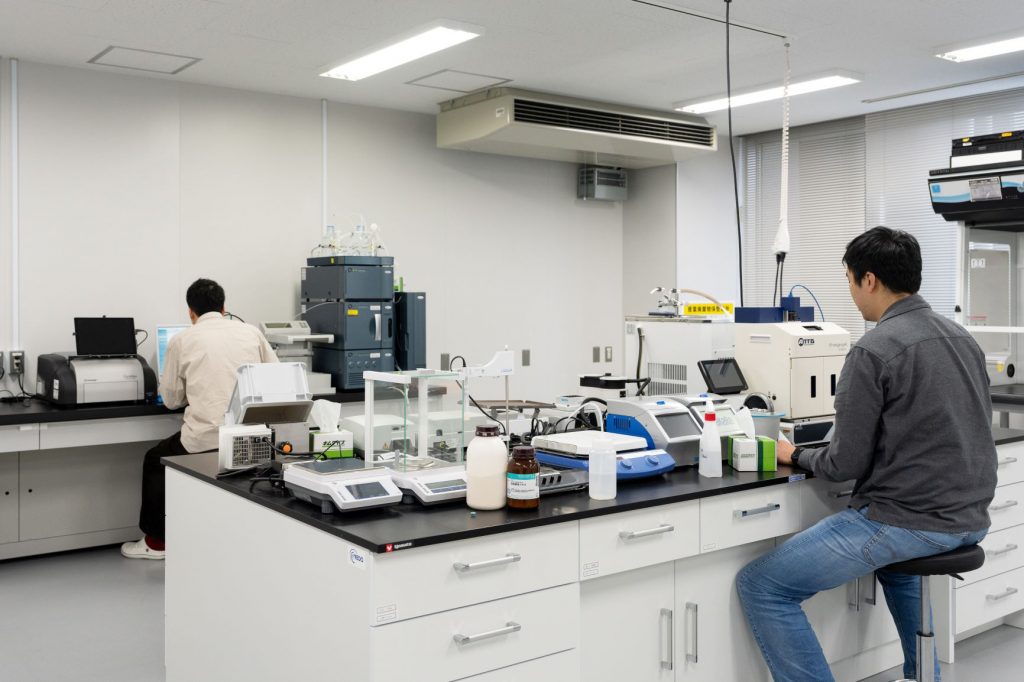
Mitsui Link Lab Kasai is a facility for the lab.
Please tell us how you moved into Mitsui Link Lab Kasai.
digzyme coming here: I first learned through investors. When I first started my business, I was researching in the shared use room of Tokyo Institute of Technology, but as research progressed, it became necessary to have my own lab, so while searching for a lab or office, I arrived at Mitsui Link Lab Kasai. What made you decide to move in was rent and area. The communication environment in the lab is well maintained, and the structure of the building is solid. The impression is that it is completely different from a regular office building.
Please tell us if there are any advantages of the lab you actually felt when you moved in.
digzyme coming here: I first learned through investors. When I first started my business, I was researching in the shared use room of Tokyo Institute of Technology, but as research progressed, it became necessary to have my own lab, so while searching for a lab or office, I arrived at Mitsui Link Lab Kasai. What made you decide to move in was rent and area. The communication environment in the lab is well maintained, and the structure of the building is solid. The impression is that it is completely different from a regular office building.
digzyme coming here: There are many requests to "I really want to see things", and I will guide you to Mitsui Link Lab Kasai, but everyone is surprised that it is a very good facility. Due to the characteristics of the business of bioinformatics, the main work is done with a supercomputer, but even if you look at the computer screen, it is difficult for the outside to understand. Therefore, it is important to invite you to the lab to observe the actual culture process etc. I would like to actively invite visitors in the future.
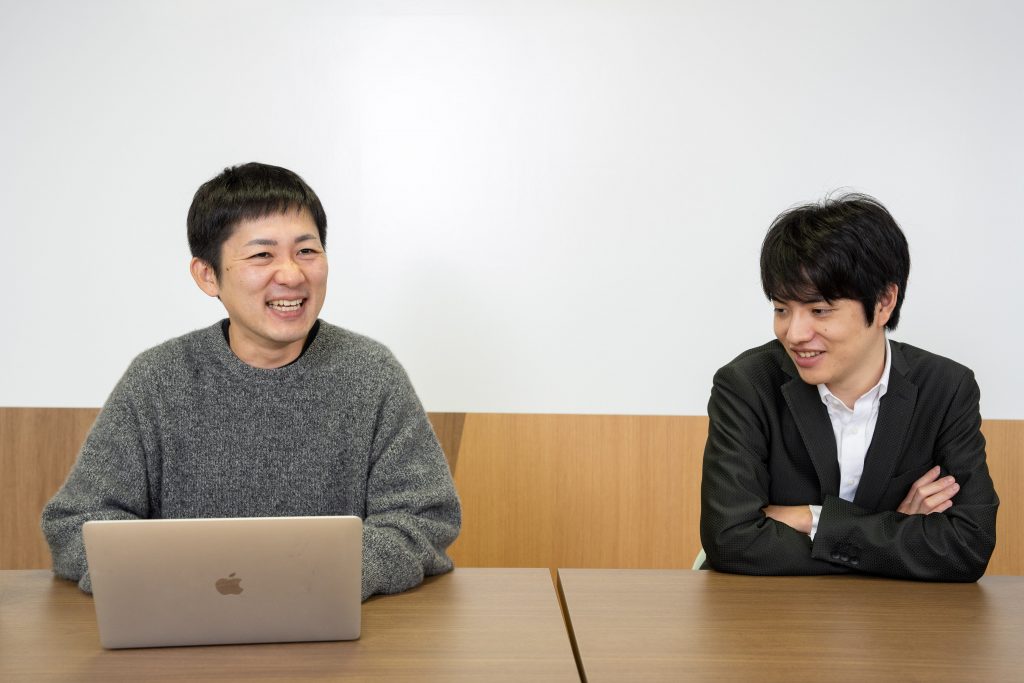
In the future, we plan to take on the challenge of production at Kasai Lab.
What are your goals and prospects for the future?
digzyme coming here: In the development of enzymes, it is important that the enzyme itself not only has excellent functions, but also that it can be produced efficiently and at low cost, and that mass production can ensure the same quality and stability as laboratory prototypes. In order to confirm that, it is necessary to actually repeat the prototype many times. Therefore, in the future, by introducing tens of liter size medium-sized production facilities at Kasai Lab, we plan to establish a system that can verify the stability at the time of mass production at our own lab.
In the end, I would like to achieve the first example of "creating effective enzymes from open data and putting them on the market as a product." We believe that our technology is also useful for precision fermentation. In fact, on a global scale, few companies have succeeded in precision fermentation (technology to create desired substances using fermentation of microorganisms that insert specific genes). We would like to continue our technological development and contribute to the commercialization of precision fermentation. In the future, I would like to become a company that says, "Enzyme is Digzyme" by taking leadership.
digzyme Izumi: Regarding the activities at Mitsui Link Lab, I would like to expand "lateral cooperation" in the future. Until now, we have not been able to make a lot of horizontal connections, but we will continue to provide opportunities for the outside to know our business, such as this interview, and in the future, we would like to make connections with people in healthcare, chemicals, environmental, and bio-manufacturing.
